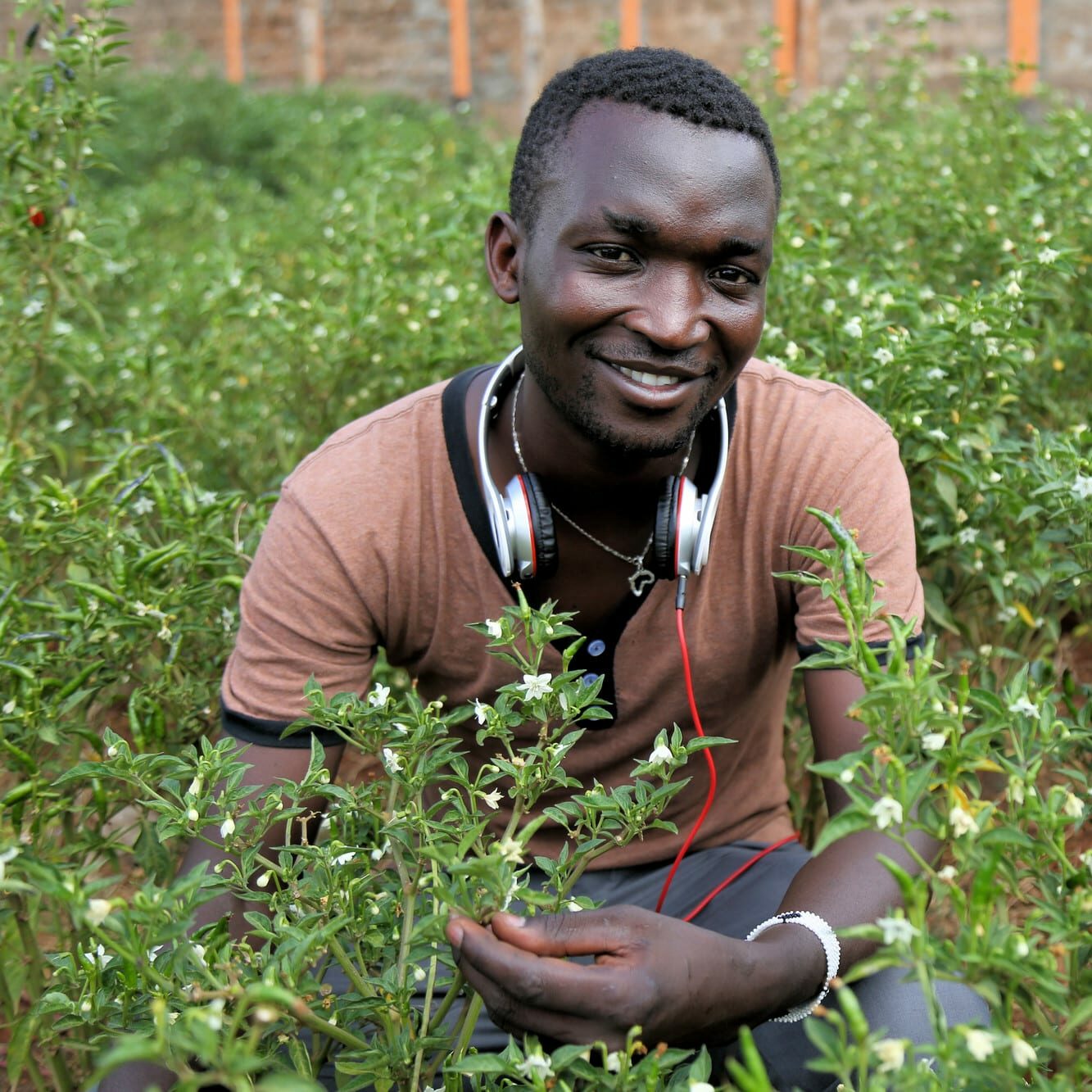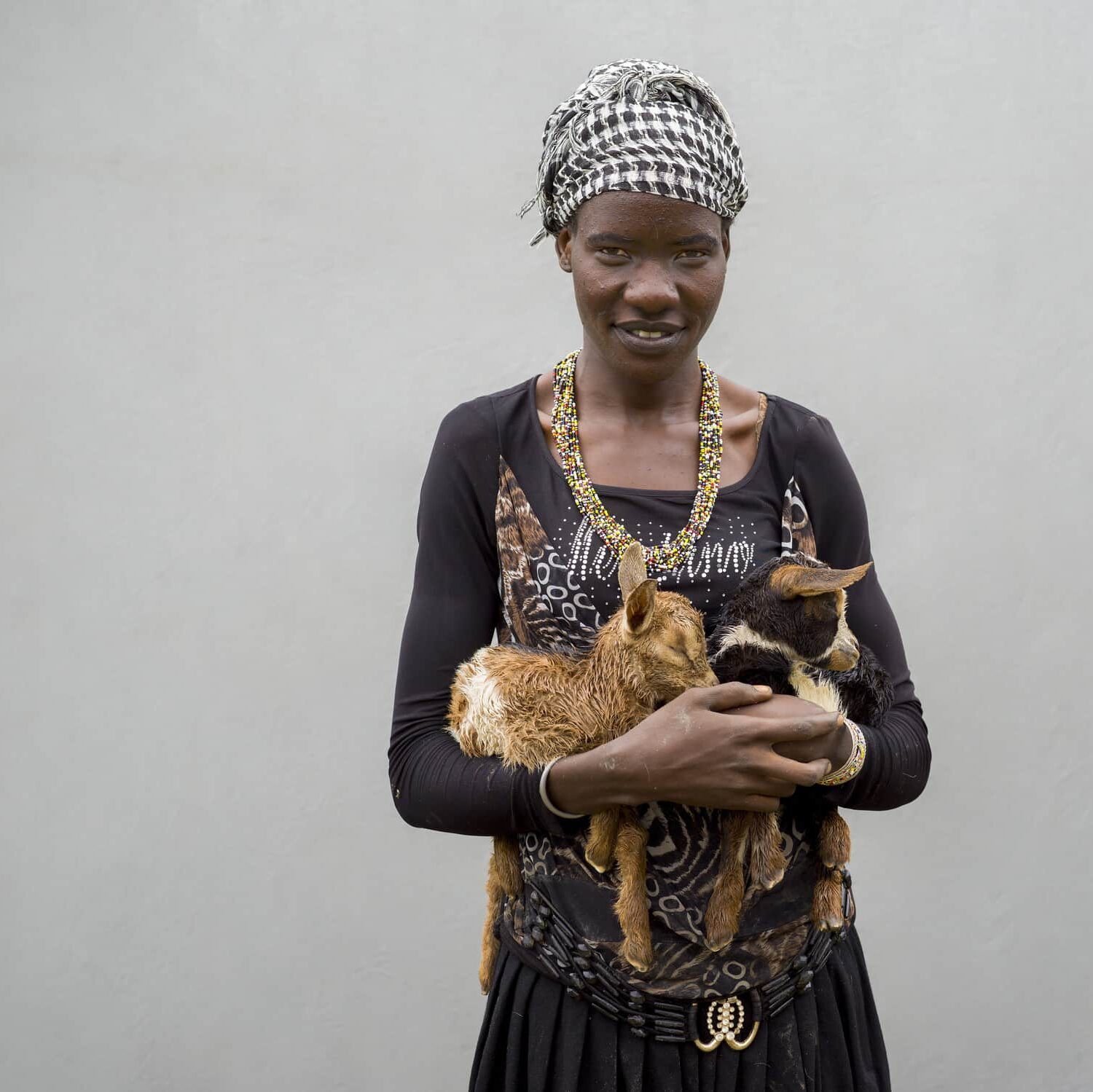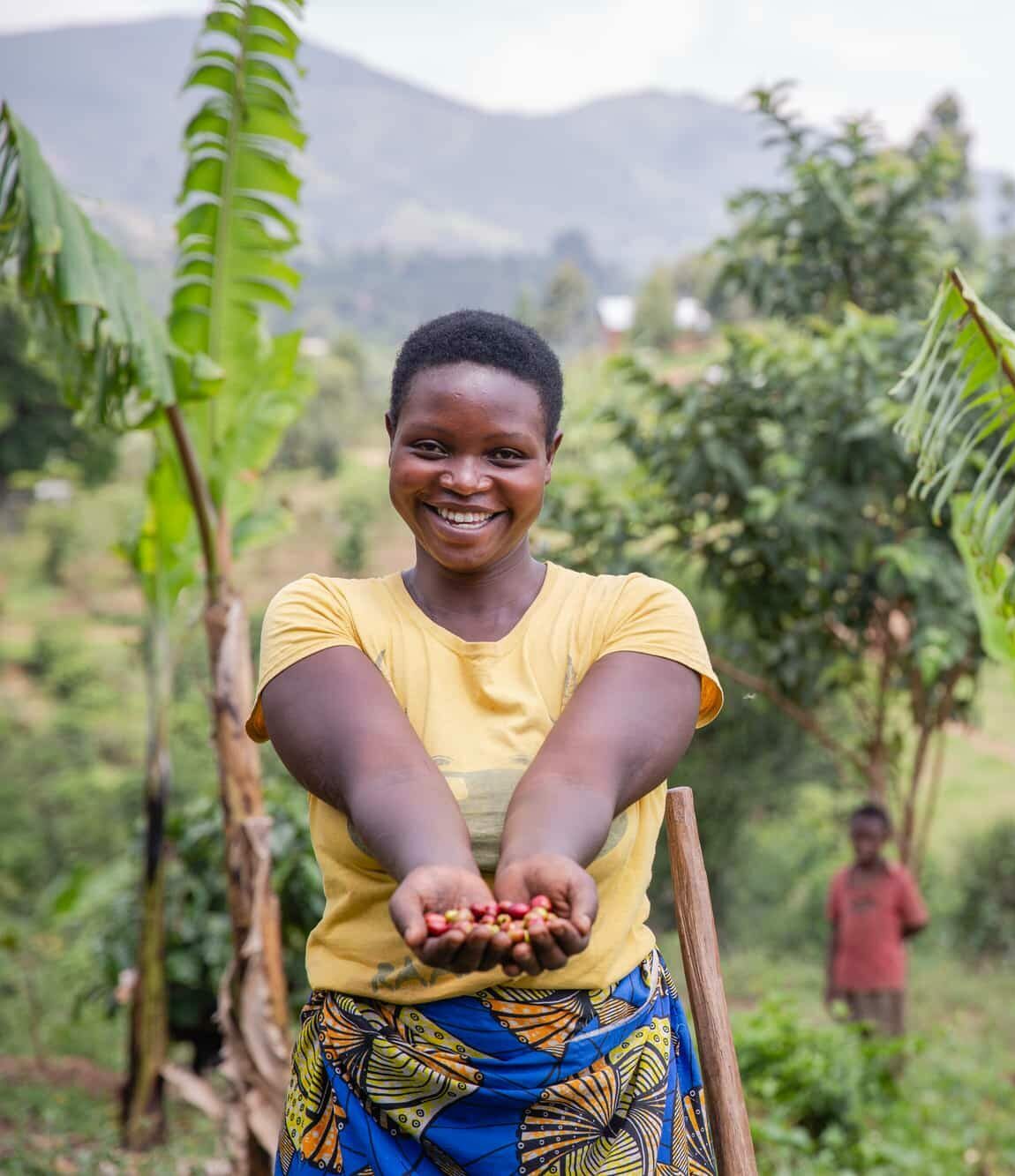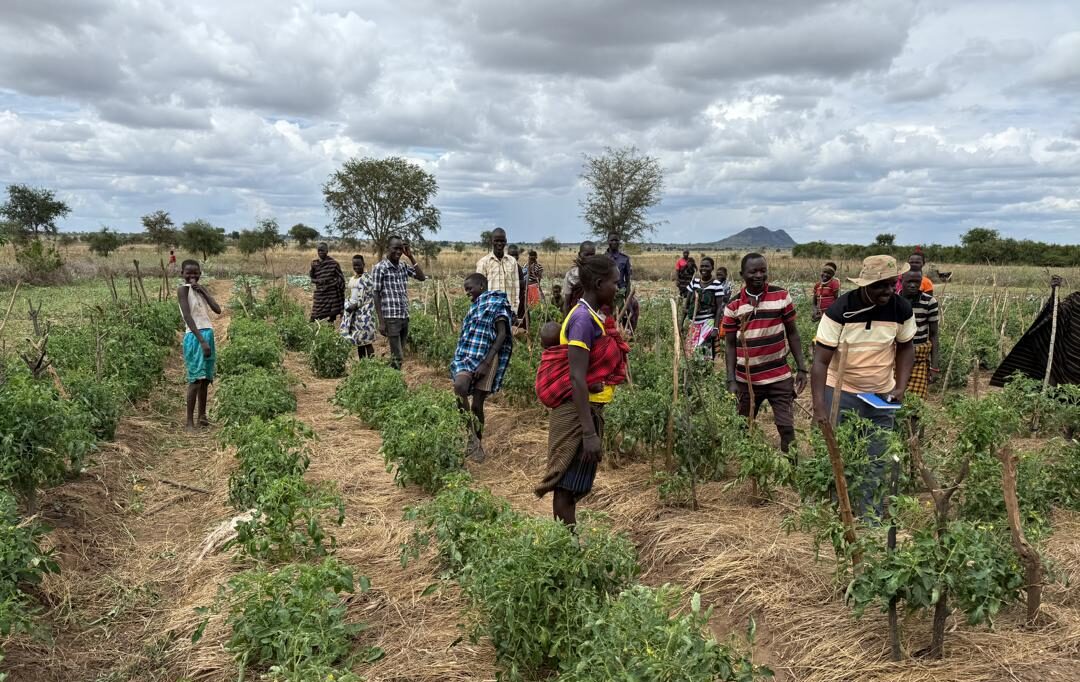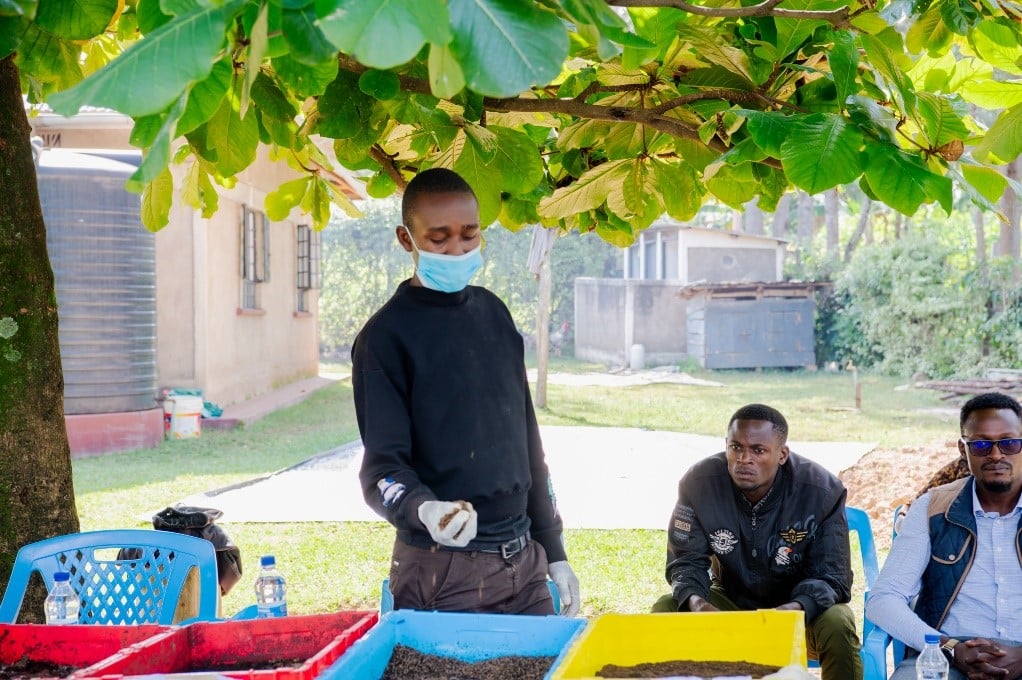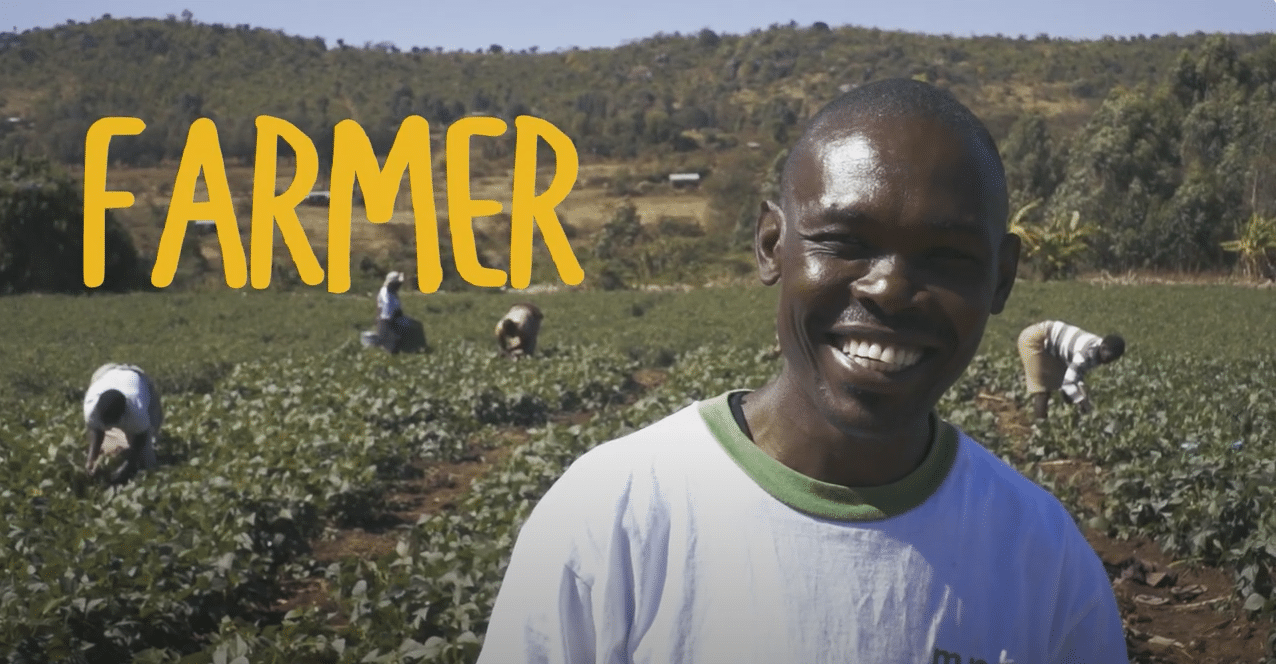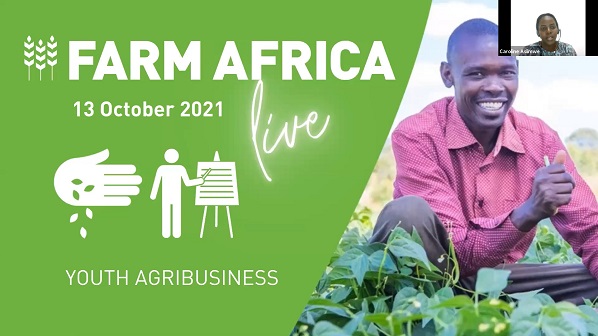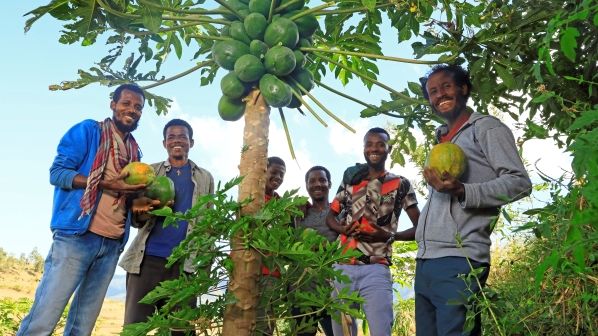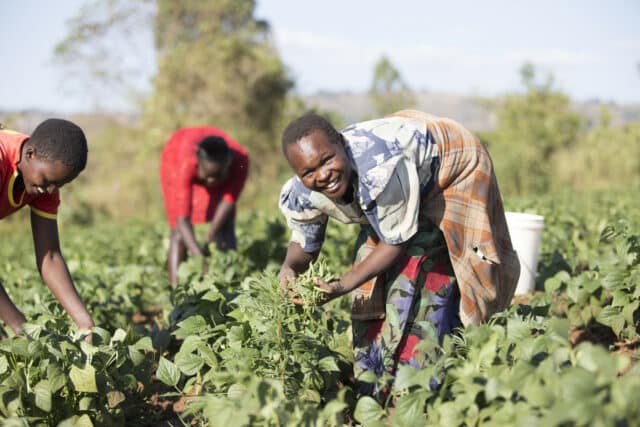The problem
Many young people in eastern Africa are unemployed. In rural areas, jobs are limited, particularly those that meet the needs and aspirations of young people, leading to rapid urbanisation.
Young people from low-income communities, and particularly young women, are the least likely to find secure work. Many are forced to take up low productivity, informal jobs in vulnerable conditions.
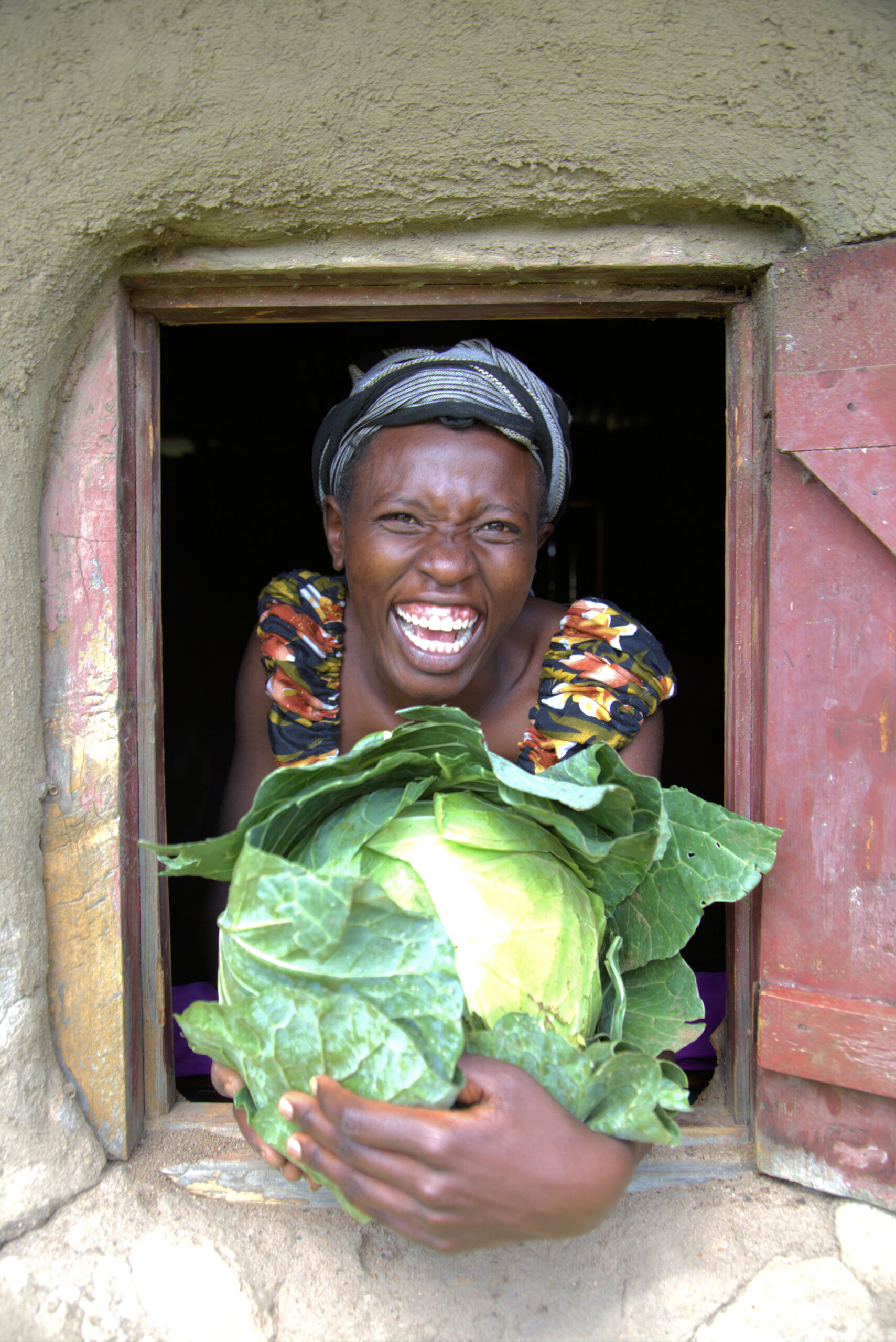
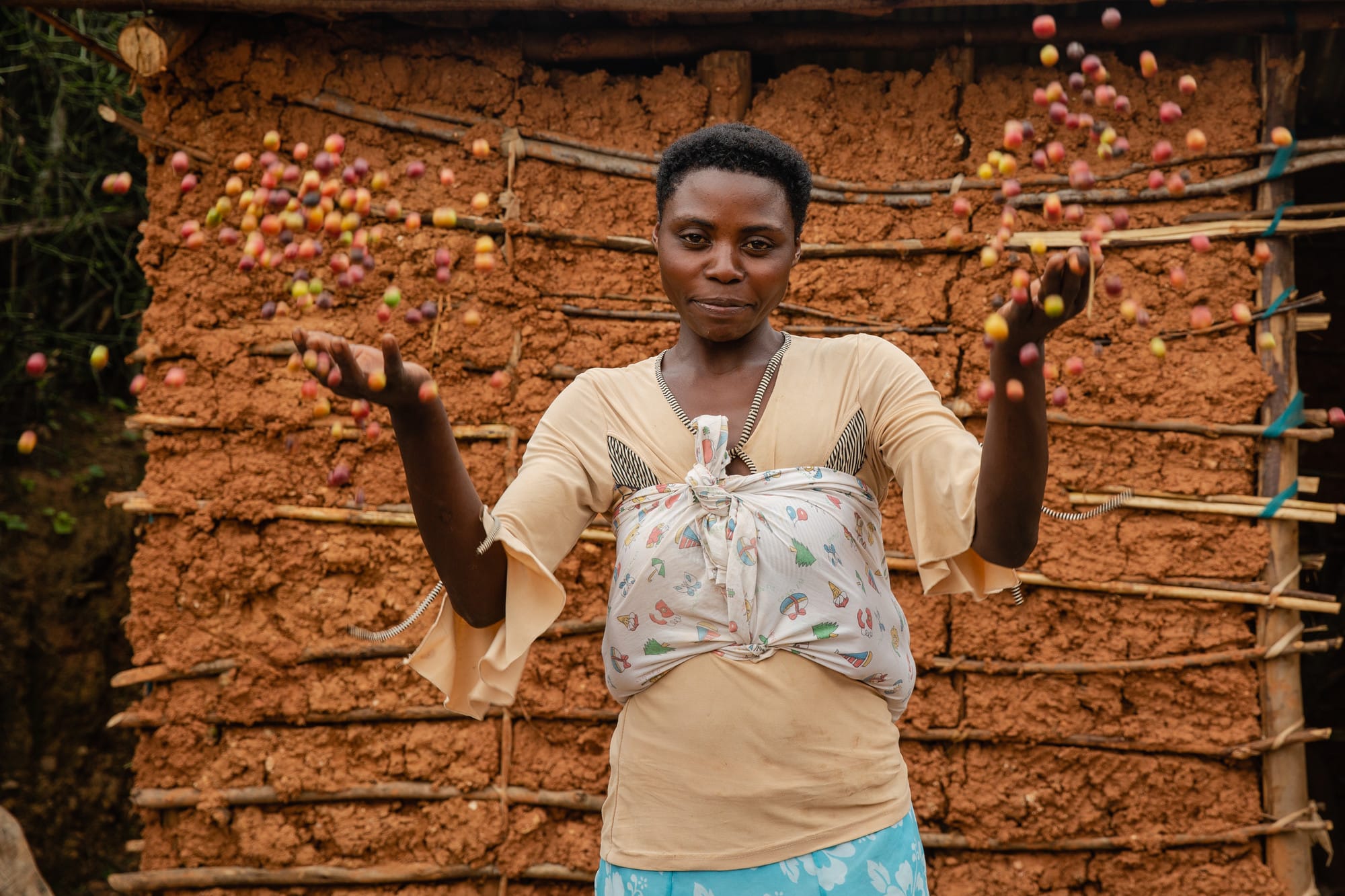
Limited technical and entrepreneurial skills, and low access to land, finance, equipment and market information hold young people, especially women, back from succeeding at farming.

The opportunity
In a region where farming is key to the economy, the agricultural sector should be offering a solution to youth unemployment in eastern Africa.
The rise of technology in agriculture offers young, would-be entrepreneurs the chance to create livelihoods from agriculture in innovative ways. Equipping young people with market-relevant, entrepreneurial and technical skills enables them to access dignified and fulfilling work along the whole supply chain.
Despite many young people's negative perceptions, agriculture has the potential to offer opportunities and growth for millions entering the workforce. As well as farming, jobs in the agricultural sector include agricultural extension services, financial services, marketing, retail, product aggregation, supplying seeds and fertilisers, and processing services.
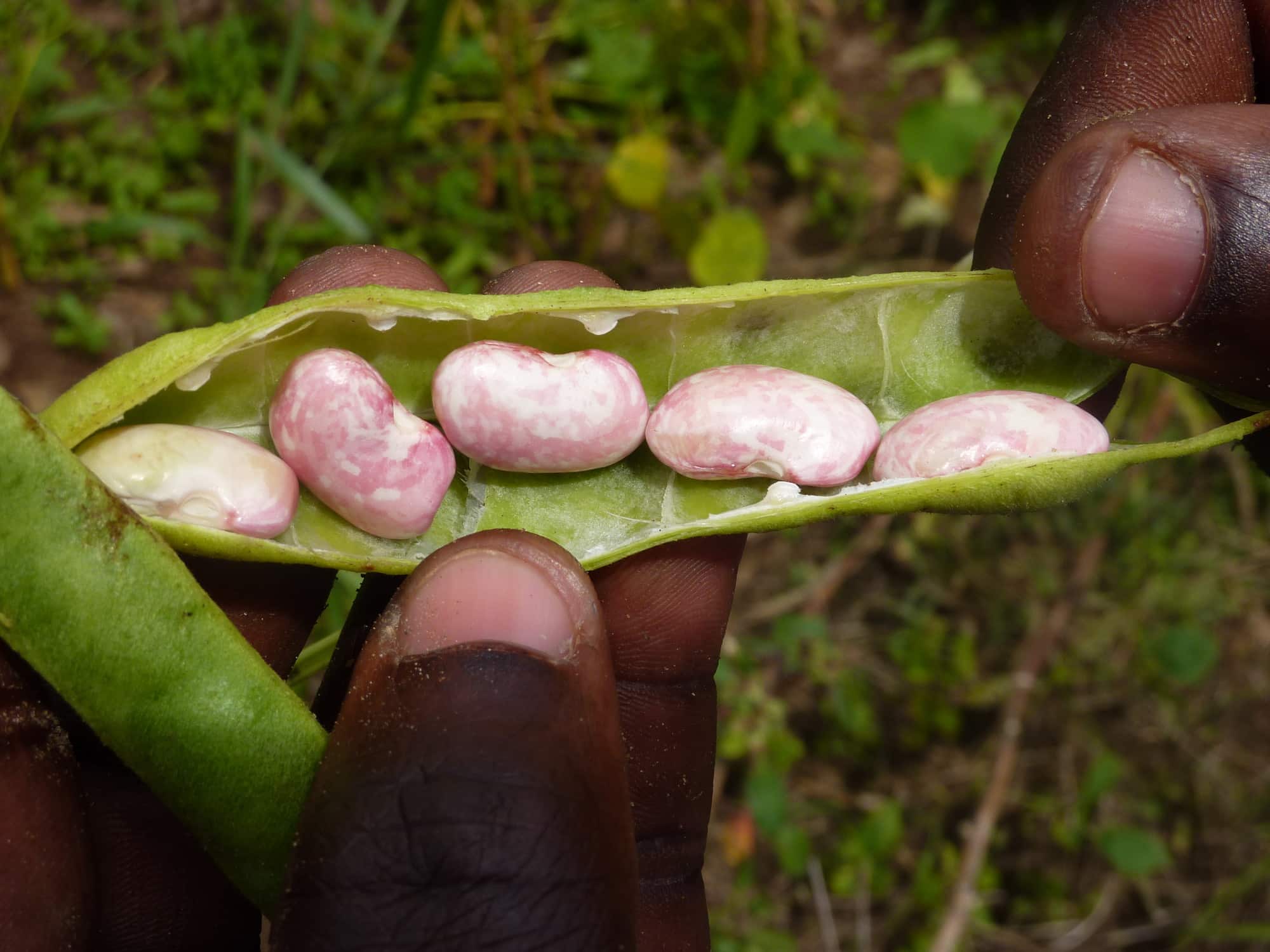
The outcome
Equipped with the right skills, young women and men can set up and run commercially viable and environmentally friendly businesses in the agricultural sector.
As a result, young people become job creators rather than job seekers, reducing poverty and driving economic growth as well as conserving biodiversity.
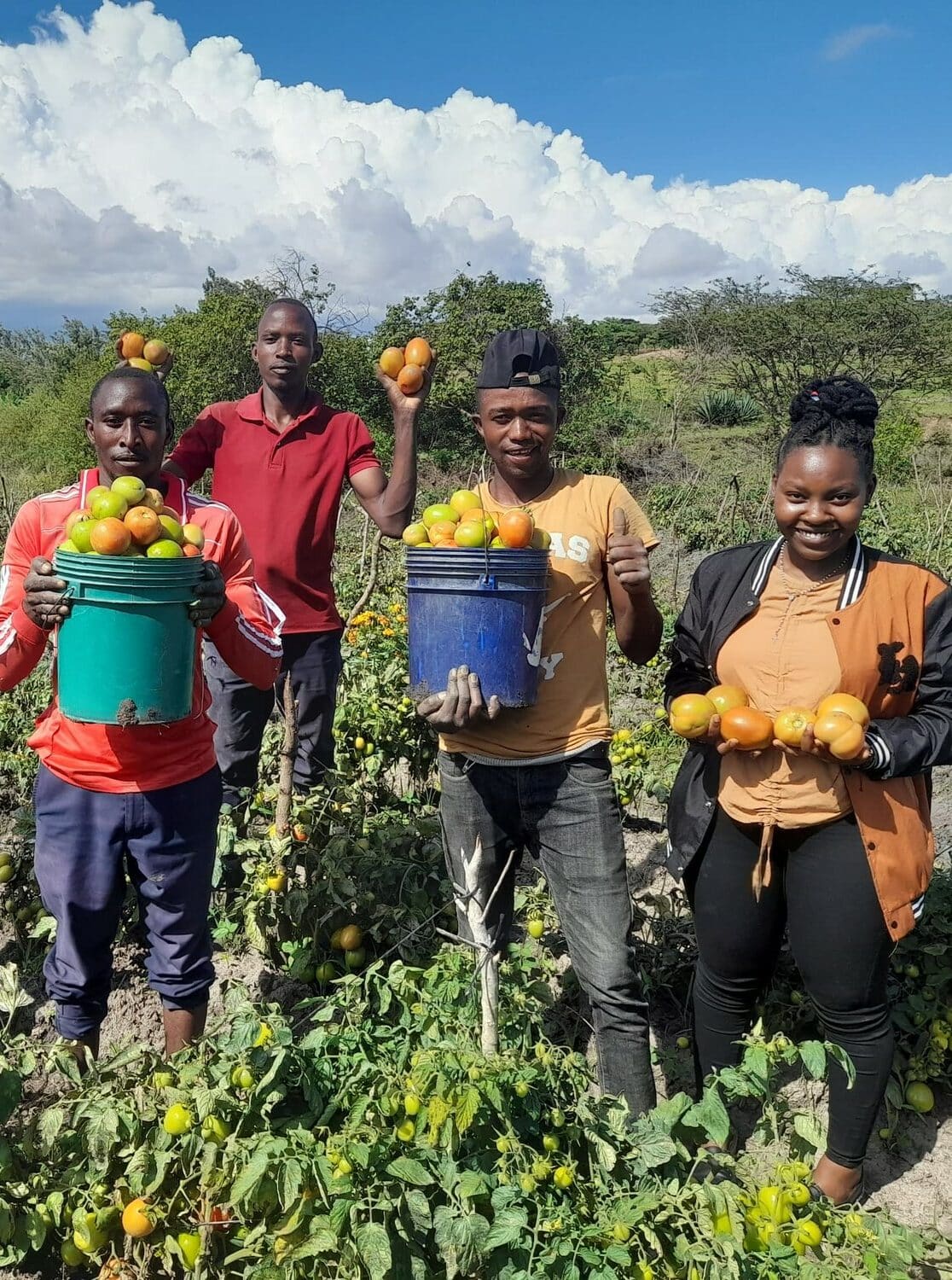
How we help boost youth employment
Farm Africa shows young people the profit-making potential of farming and working in the agricultural sector. Our support to young people includes:
- Promoting short-term, cash-earning crops to young farmers.
- Demonstrating agronomic practices and technologies on group plots used as training sites.
- Offering young people training in financial literacy and entrepreneurial, leadership and management skills so they can develop commercially viable agri-enterprise livelihoods.
- Emphasising environmentally friendly business opportunities, such as the production and marketing of fuel-efficient stoves or running tree nurseries.
- Establishing Village Saving and Loan Associations, which provide a platform for young adults to unite to save and make funds available to invest in each other’s businesses.
- Supporting youth groups to access commercial finance to sustain and expand their agri-businesses.
- Linking young farmers’ groups to markets and supporting them in the negotiation of contract farming agreements with buyers.
- Promoting gender equality in entrepreneurship.
- Working with families to establish land use agreements that give young people greater access to land.
- Encouraging young people to join cooperatives and take up leadership positions, giving them more control.
Related resources

Key focus areas
Boost youth employment
Empower women
Country
Ethiopia
Key focus areas
Boost youth employment
Increase incomes
Protect ecosystems
Eco-tourism opportunity in Ilu Ababor Ethiopia
Although Ilu Ababor Zone in Ethiopia is presently unknown to tourists, a recent scoping study carried out by Farm Africa, Mattu University and Oromia Tourism Commission has found strong potential for sustainable eco-tourism development. This study summary outlines key findings and describes, in detail, 7 priority sites for eco-tourism development consideration.
Download (1.05mb)
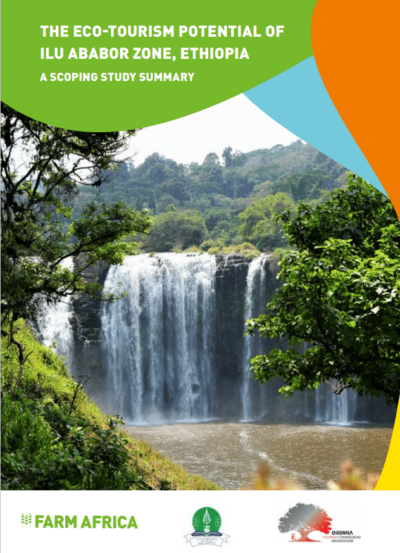
Country
Ethiopia
Key focus areas
Boost youth employment
Increase incomes
Protect ecosystems
Country
Tanzania
Key focus areas
Boost youth employment
Empower women
The role of gender in the Tanzanian horticulture sector
In Tanzania, women and youth are active participants in the agriculture sector, making significant contributions to the sector’s growth. However, the country’s progress towards gender parity across critical areas of life is still at the disadvantage of women. This document shares Farm Africa’s learning from its DECIDE horticulture programme, which has been working with 55 small and medium enterprises (56% women-led) in the Tanzanian horticultural sector.
Download (3.25mb)
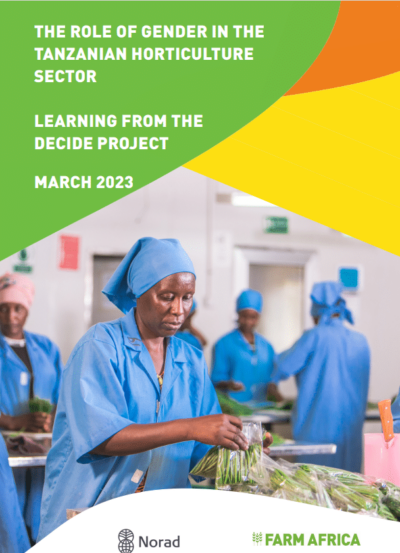
Country
Tanzania
Key focus areas
Boost youth employment
Empower women
Country
Ethiopia
Key focus areas
Boost youth employment
Empower women
Protect ecosystems
Support businesses
Ethiopia Strategy 2021-2025
A five year strategic plan for Farm Africa’s Ethiopia team which contribute to the overall objectives found in Farm Africa’s 2021-2015 strategy.
Download (1.73mb)
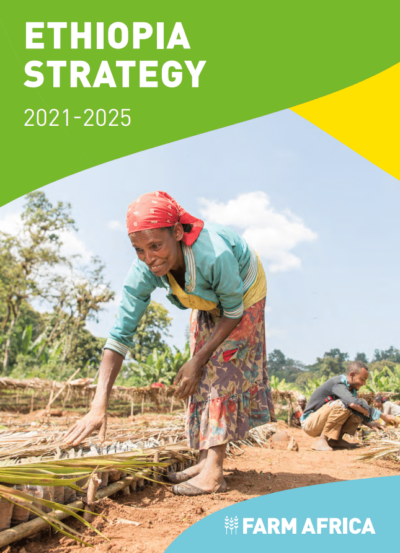
Country
Ethiopia
Key focus areas
Boost youth employment
Empower women
Protect ecosystems
Support businesses
Country
Kenya
Key focus areas
Boost youth employment
Support businesses
De-risking smallholders’ enterprises
This three-page document summarises the results and learning from Farm Africa’s Growing Futures youth horticulture project in western Kenya from 2019 to 2021.
Download (2.2mb)
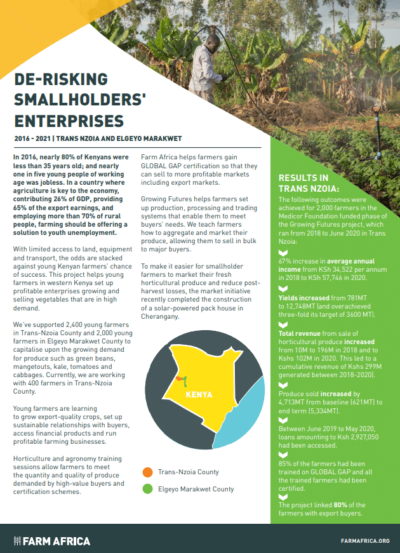
Country
Kenya
Key focus areas
Boost youth employment
Support businesses
Country
DR Congo
Key focus areas
Act on climate change
Boost productivity
Boost youth employment
Connect farmers to markets
Empower women
Increase access to finance
Increase food security and nutrition
Increase incomes
Protect ecosystems
Strengthen food systems
Support businesses
Farm Africa strategic plan 2021-2025
Farm Africa is a leading NGO specialising in promoting sustainable agricultural practices, strengthening markets and protecting the environment in rural Africa. Our strategic plan for the years 2021-2025 outlines our ambitious plan to grow and unlock the potential of agriculture to transform rural Africa.
Download (1.47mb)
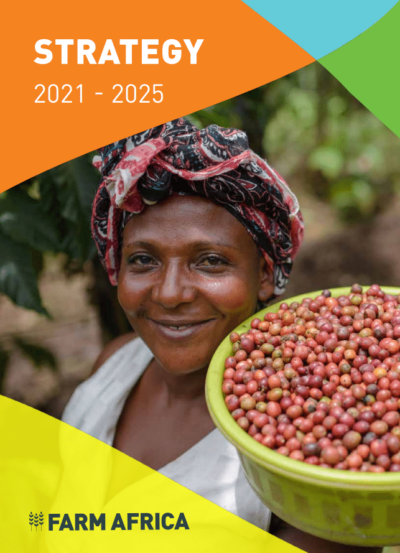
Country
DR Congo
Key focus areas
Act on climate change
Boost productivity
Boost youth employment
Connect farmers to markets
Empower women
Increase access to finance
Increase food security and nutrition
Increase incomes
Protect ecosystems
Strengthen food systems
Support businesses
